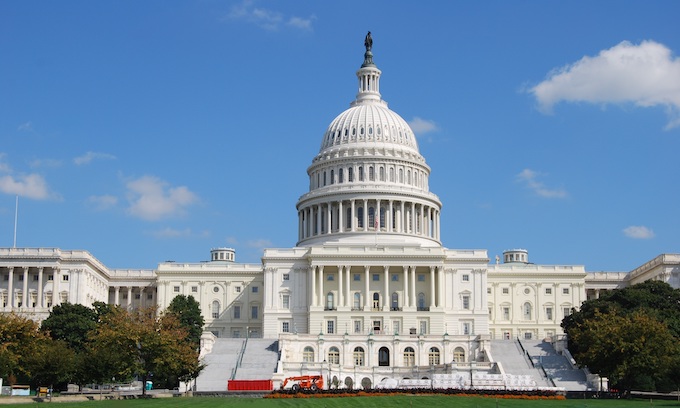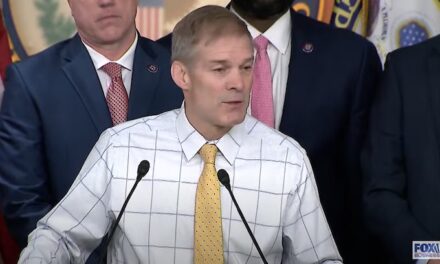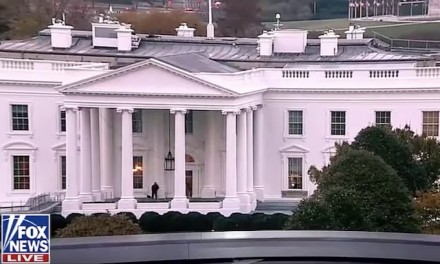After 22 days of paralysis, the U.S. House of Representatives has finally elected a speaker to fill the vacuum left by ousted Speaker Kevin McCarthy (R-Calif.).
On Oct. 3, Rep. Matt Gaetz (R-Fla.), joined by seven other Republicans, voted with all House Democrats to remove Mr. McCarthy from the position he had tenuously held since January. But no clear replacement for Mr. McCarthy was immediately evident, leading Republicans to nominate four people for the job before finally finding one who could garner enough support.
That candidate, newly elected House Speaker Mike Johnson (R-La.), is relatively unknown in the politics of the capital.
After his election on Oct. 25 by a unanimous vote of Republicans, his first official act as speaker was to bring to the floor a resolution condemning the Hamas terrorist group for its attack on Israel. The resolution was overwhelmingly approved, with only 10 no votes.
However, much work remains for the new speaker, who will need to get Washington back on track after weeks of chaos left it unable to do anything.
Here’s what to expect from the House in the coming weeks.
Averting a Government Shutdown
Priority No. 1 for lawmakers is averting a government shutdown.
In his last act as speaker, Mr. McCarthy, with the support of House Democrats, pushed a stopgap spending bill through the lower chamber to keep the government funded until Nov. 17.
Now, beating that deadline is Mr. Johnson’s top priority as speaker, he said, and Republicans now have only a few weeks to do it.
The House still needs to pass seven of the 12 annual appropriations bills.
So far, they’ve passed five of the 12, including a bill to fund the State Department and foreign operations, a bill to fund military construction and Veteran’s Affairs, bills to fund the Pentagon and Department of Homeland Security, and, last week, an energy bill.
Passing the remaining bills, Mr. Johnson said earlier, will allow the House to negotiate with the Democrat-controlled Senate from “a position of strength.”
Ideally, Mr. Johnson hopes to pass each of these eight bills individually and through regular House order—the outcome that conservatives have called for all along in the hope of averting an omnibus spending bill, in which all government funding is passed through a single gargantuan package.
However, passing all of these bills before Nov. 17 represents a Herculean challenge for Mr. Johnson, and he’s made clear that, if necessary, he’s open to the prospect of another stopgap bill.
And even if Mr. Johnson can navigate the House through passing all 12 bills, he’ll still need to reach an agreement with the Democrat-held Senate.
Many Republicans hope to use funding as a vehicle for winning concessions from the Senate and President Joe Biden.
But this partisan posturing will almost certainly require bicameral negotiations to find a solution that both sides can agree on, which will take up additional time after funding passes the House.
With seven bills to pass and little time to pass them and negotiate a deal with the Senate, it’s unclear if Mr. Johnson will have to ultimately bring a stopgap spending bill to the floor to keep the government open after Nov. 17.
Aid for Ukraine and Israel
Also on lawmakers’ agenda is considering additional financial aid for Israel and Ukraine.
President Biden has requested a massive investment in the two conflicts, asking Congress to approve over $100 billion in aid—a figure many Republicans have balked at.
President Biden and Senate Minority Leader Mitch McConnell (R-Ky.) have both called for the consideration of such aid as part of a single package. But this has been opposed by Republican populists in both chambers of Congress, who have called for the consideration of each financial assistance package separately.
In the past, Mr. Johnson has voted against most U.S. aid to Ukraine.
While he’s now open to bringing aid packages to the floor, Mr. Johnson has said that he hopes to pass them separately.
“I told the staff at the White House today that our consensus among House Republicans is that we need to bifurcate those issues,” Mr. Johnson said Thursday in an interview with Fox News host Sean Hannity.
Mr. Johnson has said that the House will present its own plan to provide Israel with $14 billion in financial assistance.
“One thing that House Republicans are resolved on is that we must stand with our most important ally in the Middle East, and that’s Israel. We will,” Mr. Johnson said. “We certainly hope that it doesn’t come to boots on the ground.”
Just four days after he took up the mantle of speaker, Mr. Johnson declared to a largely Jewish audience, “We are going to stand like a rock with our friend and our ally, Israel.”
By contrast, he expressed some concerns with the war in Ukraine, which he said has been funded by the United States without proper oversight and with no clear strategy from America.
“We can’t allow Vladimir Putin to prevail in Ukraine, because I don’t believe it would stop there, and it would probably encourage and empower China to perhaps make a move on Taiwan. We have these concerns,” Mr. Johnson said.
“We’re not going to abandon them. But we have a responsibility, a stewardship responsibility, over the precious treasure of the American people,” he continued.
“We have to make sure that the White House is providing the people with some accountability for the dollars,” Mr. Johnson said, a reference to a long-running GOP demand for a Ukraine funding watchdog.
Additionally, Mr. Johnson said that the White House has failed to explain the “endgame” in U.S. funding to Ukraine.
Mr. Johnson added, “We deeply care and are concerned about all nations of free people around the world, but we have to take care of our own house first, and so that’s also part of this delicate calculation and the decision.”
Despite some Republican concerns with funding particularly the Ukrainian conflict, it’s all but a foregone conclusion that Congress will ultimately pass additional aid for both Ukraine and Israel, as similar packages have historically passed by wide margins.
Biden Impeachment Inquiry
As the House returns to normal functions, Republicans also plan to resume their impeachment inquiry into President Biden.
Earlier this year, then-Speaker McCarthy announced that Republicans were launching an impeachment probe into the president without a vote of the full House, a move that gave Republicans additional powers to investigate the president.
That decision came after House Oversight Committee Chairman James Comer (R-Ky.) and House Ways and Means Committee Chairman Jason Smith (R-Mo.) revealed findings alleging that the Biden family and their associates had made over $21 million from foreign sources and received preferential treatment from federal law enforcement.
The impeachment probe is gearing up to explore what role, if any, President Biden played in the business dealings of his son, Hunter Biden.
After taking the gavel, Mr. Johnson—who previously served on Judiciary Committee Chairman Jim Jordan’s (R-Ohio) Subcommittee on the Weaponization of the Federal Government—said that he had no plans to end that impeachment inquiry.
“We have the receipts on so much of this now,” Mr. Johnson told Mr. Hannity, addressing the possibility that the elder Biden was involved. “It’s a real problem.”
During previous hearings, Republicans have acknowledged that they don’t have enough evidence to move forward on an impeachment resolution against the president yet.
But Mr. Johnson, a supporter of the probe, says he believes that the facts will eventually implicate President Biden.
“That’s the reason that we shifted into the impeachment inquiry stage on the president himself because if, in fact, all the evidence leads to where we believe it will, that’s very likely impeachable offenses,” Mr. Johnson said. “That’s listed as a cause for impeachment in the Constitution—bribery and other high crimes and misdemeanors.”
“It looks and smells a lot like that,” Mr. Johnson added.
Lawrence Wilson and Savannah Hulsey Pointer contributed to this report.



















For gawd sake, do NOT PUSH THROUGH ANY Omnibus spending bills, ESPECIALLY ONCE THE DEMS SUPPORT.